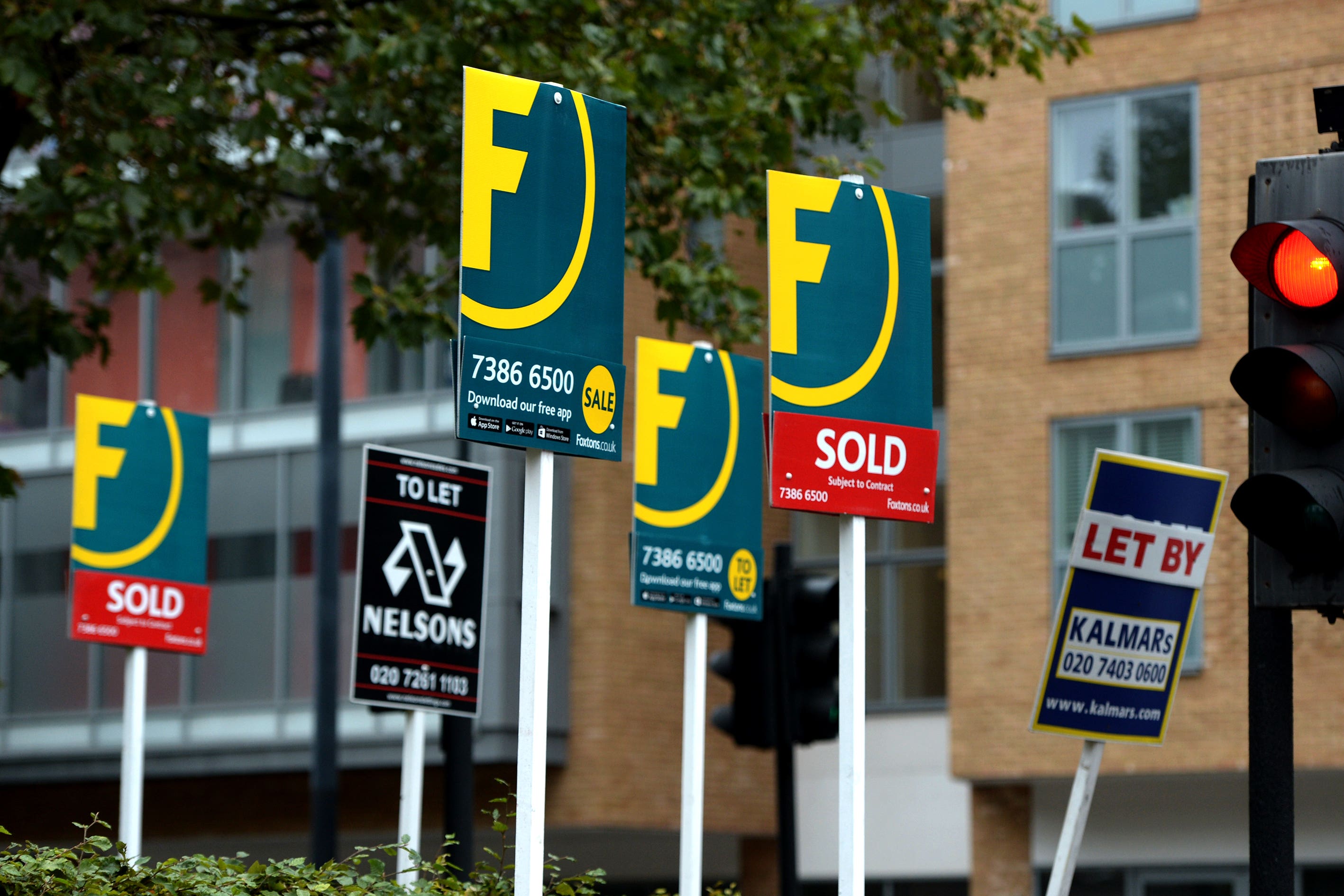Pity those seeking to get on the property ladder as prices rise after months of falls
First-time buyers still have a mountain to climb, says James Moore, with the dip in the housing market not having provided much relief


You could be forgiven for thinking it’s the end of the world when markets drop – lock your doors and put any money you’ve got under the bed. But corrections are sometimes very necessary.
So, to Britain’s (somewhat) battered housing market which, according to Nationwide, has perked up a bit after seven consecutive monthly falls.
The lender’s latest index shows that prices rose by 0.5 per cent during April. So of course, all of a sudden we’re talking about the green shoots of recovery (at least for now).
True, recent Bank of England data has indicated that housing market activity was very subdued in the early part of 2023, with the number of mortgages approved for house purchase in February nearly 40 per cent down on the previous year (and around a third lower than pre-pandemic levels).
But Nationwide’s chief economist Robert Gardner says industry data points to a pick up over mortgages too. Pay attention to that – because the industry will likely see signs of a nascent improvement in activity long before it is reflected in the Bank’s figures.
So does this indeed mean that the worst is over?
Wait, how bad was it? The Nationwide index shows house prices are still down on an annual basis (so compared to April 2022) but only by 2.7 per cent. Which isn’t much.
They are 4 per cent below where they were in August, just before Liz Truss’ ill-judged suggestions for the UK economy. But they are 18 per cent above where they were during the low point of the pandemic.
So the market has scarcely corrected itself at all. Even if the current economic backdrop of high inflation, with food and energy bills showing particularly nasty spikes, shows the housing market was due one.
Now consider the most recent Nationwide affordability numbers, which it releases quarterly. In the first quarter of 2023, up to March, the average first-time buyer spent 37 per cent of their take-home pay on mortgage repayments, well above the long-run average. That compares to 30 per cent over the same period in 2022.
Would be first-time buyers are being stretched to breaking point. Buying a home remains a horribly expensive undertaking. It is something that is becoming increasingly out of reach, at least to those who don’t have the ability to tap the bank of mum and dad for assistance.
A correction of 2.7 per cent compared to last year isn’t going to do much to help those without that help. Those who could be forgiven for looking at the market with something akin to despair even after the recent (modest) falls in prices.
What might cheer them up a bit is that mortgage rates have mostly shrugged off the damage done during the mercifully short premiership of Truss. The average price of a five-year fixed rate deal, based on 75 per cent loan to value, has – according to Nationwide – fallen to 4.3 per cent from just above 5.5 per cent (the peak induced by Truss’s time in Downing Street).
Remember, fixed-price mortgages are priced based on market expectations for future interest rates rather than by reference to today’s base rates.
The Bank of England is likely to increase interest rates after next week’s meeting of its Monetary Policy Committee – given the stubborn refusal of inflation, and particularly core inflation which strips out those ever-volatile food and energy prices – to drop significantly.
However, if interest rates start to edge down later this year, as expected, and mortgage rates continue to improve (a five-year fix is still roughly twice the price it was at this time last year), that could further help with affordability.
It doesn’t hurt that average wages are increasing at a faster clip than house prices, even if they are undershooting the official rate of inflation. At least for workers in the private sector.
However, the underlying problem remains. There are too many people chasing too few homes and Britain is failing to build enough to cope with demand.
That is what ultimately keeps prices in this country so appallingly high.
Join our commenting forum
Join thought-provoking conversations, follow other Independent readers and see their replies
Comments
Bookmark popover
Removed from bookmarks